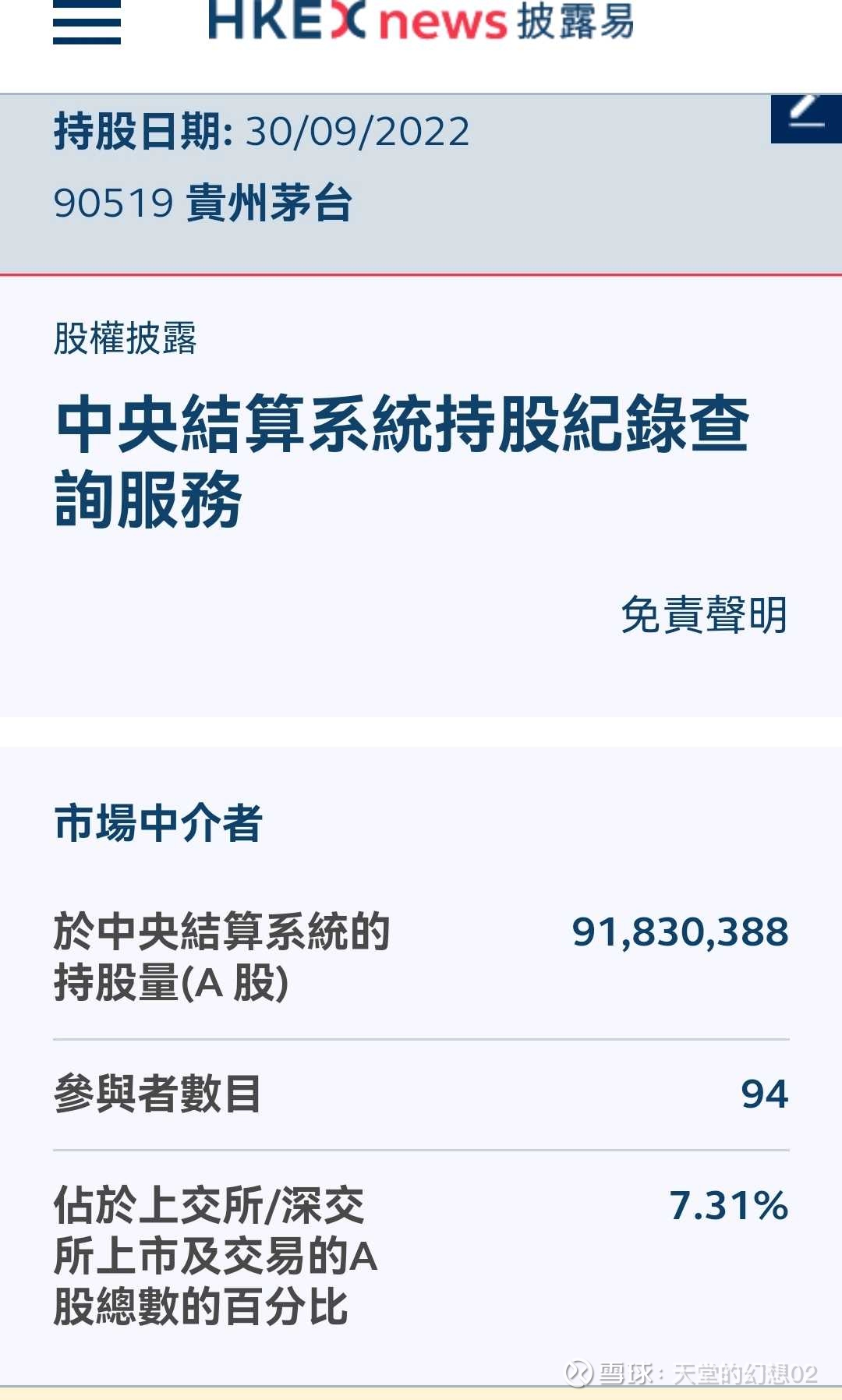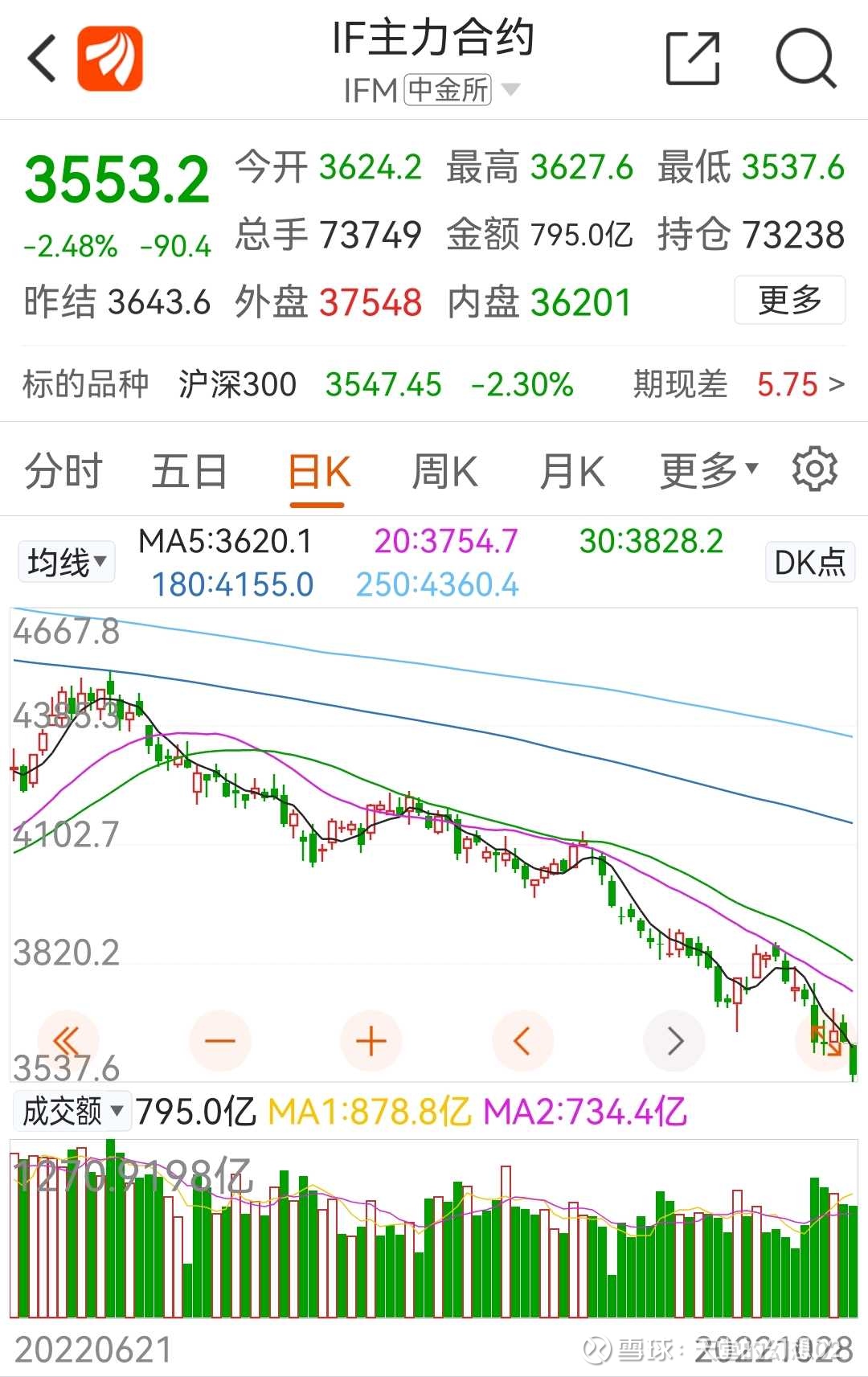As of the end of June, there were 139 fund management companies in my country, managing more than 10,000 public funds.
As of the end of June, the net value of public funds was 26.79 trillion yuan, and the market value was 5.95 trillion yuan. Covering more than 90% of the stocks in the two cities.
As of the end of September, Hong Kong capital held a market value of about 2.77 trillion in Big A.
Every time I saw these statistics before, I could feel the official pride and pride.
The market is not good recently, and individual stocks are not good either. Anyway, if you have nothing to do, study and think about it. After all, there is still a long way to go.
In the past few years, I was more concerned about Muyuan’s Hong Kong-invested properties. Every day I went in and out, I was excited when I bought it, and cursed when I sold it. Almost all pig herds have this virtue.
Because the data of Hong Kong capital can change every day, to put it bluntly, it is the real information disclosure. Looking back at our organization, how can we see data? The institutions here are mainly public offerings, and what you can see every day is the change in net worth.
The opaqueness of information eventually led the market to unknowingly look towards Hong Kong capital. Every move of Hong Kong capital has an increasing influence on the market.
One that you can actually see, and one that you can’t figure out all day, who do you prefer to believe?
1. Take Kweichow Moutai as an example and analyze it.
As of the end of September, Hong Kong capital held 91.83 million shares of Moutai, with a total market value of 171.9 billion yuan at the closing price at the end of September.
The public fund holds 94.47 million shares, with a market value of 176.8 billion yuan.
The number of shares held is basically the same as the market value.
Look further down.
How many institutions are there in Hong Kong?

The data of the registration center is 94.
in:
1. The Hongkong and Shanghai Banking Corporation: 27.63 million shares;
2. JP Morgan: 21.22 million shares;
3. Standard Chartered Bank (Hong Kong): 18.53 million shares;
4. Citibank: 7.13 million shares;
5. UBS SECURITIES HONG KONG LTD (UBS): 5.38 million shares;
6. Morgan Stanley: 2.2 million shares;
7. Merrill Lynch: 1.79 million shares;
8. JP Morgan: 1.5 million shares.
8 institutions hold a total of 85.38 million shares, accounting for 93%
Look at the number of fund households (as of September 30): 2070 (still being updated).
The market value of shares held by major shareholders and several specific shareholders is about 1.05 trillion. After removing it, it is basically a game between Hong Kong capital and funds, and of course there are big private equity.
The time period for Hong Kong capital to build a warehouse for Moutai:
1. In 2014, 35.37 million new shares were purchased, with an average price of 158 yuan that year;
2. In 2015, it increased its holdings to 69.45 million shares, with an average price of 222 yuan that year;
3. In 2016, there were 79.91 million shares (increased holdings), with an average price of 276 yuan that year;
4. 73.7 million shares (reduced) in 2017, with an average price of 502 yuan that year;
5. 99.95 million shares in 2018 (increased holdings), with an average price of 685 yuan that year;
6. In 2019, 102 million shares (increased holdings), with an average price of 940 yuan that year;
7. 104 million shares in 2020, with an average price of 1441 yuan that year;
8. 89.68 million shares (reduced) in 2021, with an average price of 1,959 yuan that year.
It can be seen that in 2016, Hong Kong capital basically completed the construction of big bottom positions.
And our public fund, for so many years, the good guy is more dazzling than the revolving lantern.
Therefore, you don’t need to calculate the respective costs to know that Hong Kong capital has a full safety pad.
Second, the game.
How does this market make money? There are actually two rules:
1. The predecessors earn the money of future generations; 2. The big fish eat the small fish.
The public offering itself is already the main body of the market. Whose money does it make? Chinese chives? Pull it down.
Public funds either play against each other or make money from foreign capital.
Now that the public fundraiser has signed up for the group, more than 2,000 people have been held together. Seems solid.
But Hong Kong capital also signed up for the group, only 8 people. Three of the eight Morgans belong to the Morgan family, which is one of the major shareholders of the Federal Reserve.
The public offering group is for heating, and heating means running out of money. The stock price is at the top of the mountain again, and the cold wind is whizzing.
Hong Kong capital has started. As mentioned earlier, because of the disclosure of information, every move of Hong Kong capital is a bellwether. Throwing out several hundred million a day, for several days in a row, will form a chain reaction in the market.
Then there is the internal collapse of the newspaper group fund, which runs faster than anyone else. There is no need for Hong Kong capital to do anything, and they will come back for some after a while.
Our public funds are divided into four categories: currency, bond, hybrid, and stock. Among them, stocks are also divided into index, comprehensive and industry categories. The funniest thing is the industry category. Don’t go to pig raising if you are engaged in new energy. So when the new energy track collapsed, the consumer class was rejoicing, now what? It’s your turn.
Some people may want to ask, don’t you lose your own money if you lose Hong Kong capital? Many people forget that we still have stock index futures, and although speculative trading is crippled, hedging is normal. As for whether there are peripheral futures and options hedging tools, I don’t know.

Hedging is already done.
As the largest market value of Maotai, Maotai collapsed, the entire consumer sector collapsed, and then spread…
Of course, not all at once. Pumping water to fish for fish, you can’t catch all the fish. Because they all know where the public money comes from.
3. Conclusion
You say people are maliciously shorting? They are reasonable and legal, and they make money in full accordance with our market rules. And more open and fair than us.
The problem is ourselves.
The stock price is only a reflection of the company’s value. If you think about it in a big way, Hong Kong capital will have the capital pricing power of these companies through this means.
Of course, the stock market is not opened by me, nor is it opened by Hong Kong capital.
We have no power to change all of this. Only through study, research and thinking, we can gain insight into the reasons for all this.
If you know what’s going on, there’s no need to panic. All you have to do is to take care of your hands and not make any decisions under the panic of zero IQ.
This post is not enough for buying and selling advice, it is only for your own research and thinking. $Muyuan (SZ002714)$ $Weichai Power (SZ000338)$
There are 29 discussions on this topic in Snowball, click to view.
Snowball is an investor’s social network, and smart investors are here.
Click to download Snowball mobile client http://xueqiu.com/xz ]]>
This article is reproduced from: http://xueqiu.com/8418018079/233907477
This site is for inclusion only, and the copyright belongs to the original author.